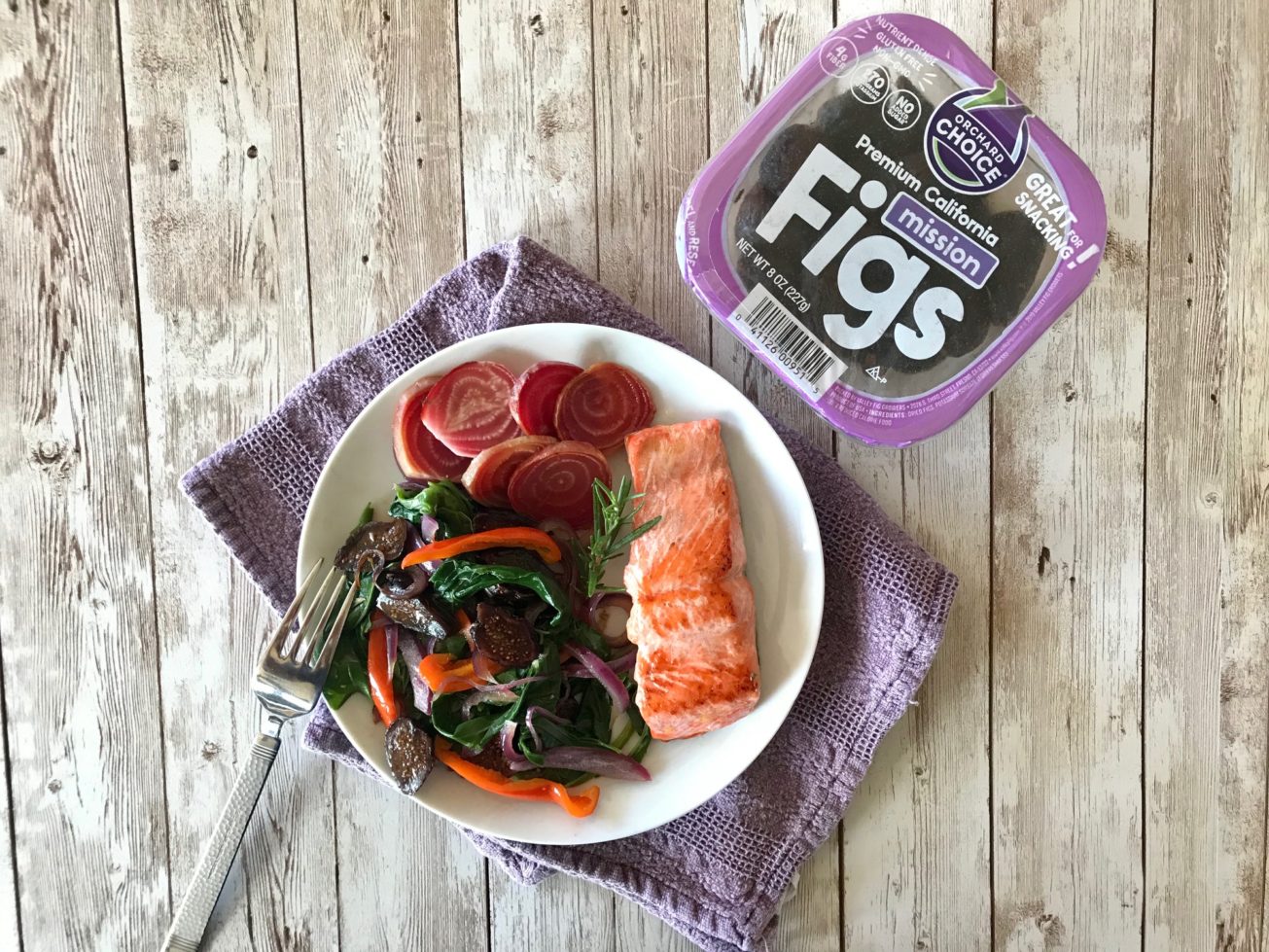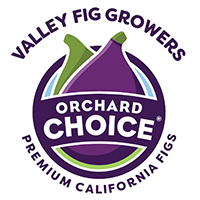by Lorelle Del Matto, MS, RDN
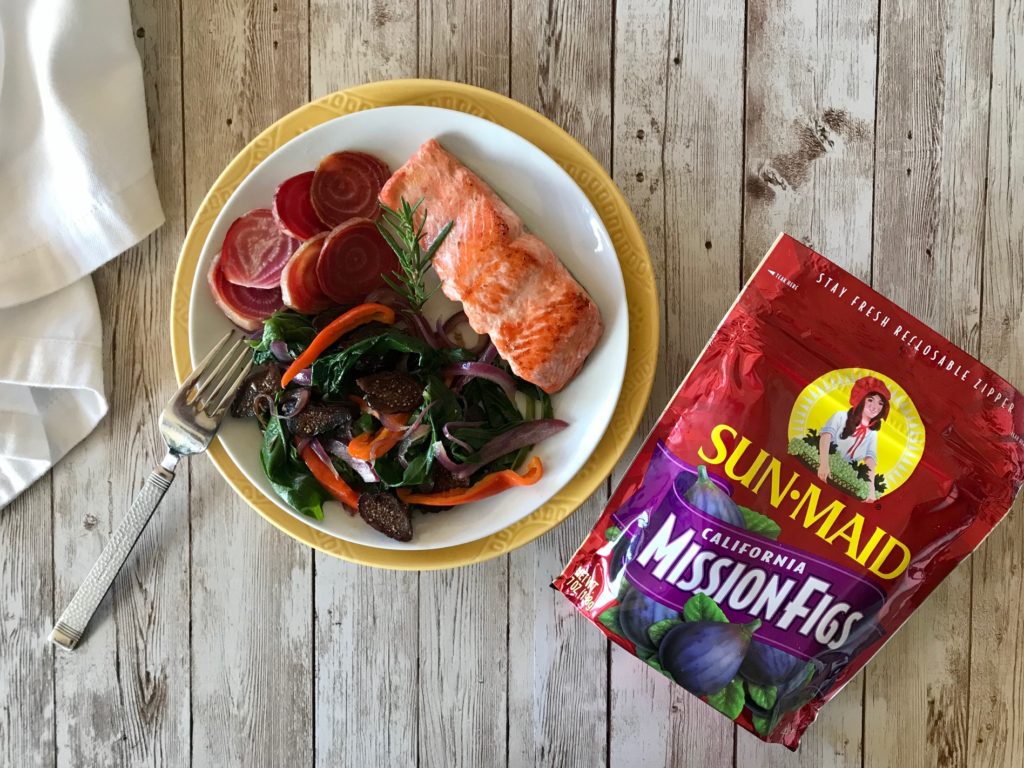
Why do you eat figs? If your answer is “They taste good!”, you’re not alone. There are many reasons we choose foods, but taste is number one, according to fifteen years of consumer research conducted by the International Food and Information Council (IFIC) (1). The potassium in figs might just have you reaching for the bag too.
Healthfulness is an important and growing reason for choosing foods, too. In the latest 2020 IFIC survey, over half of respondents said that they care more about making healthy food choices today, compared to 10 years ago (1).
Food package information, especially the Nutrition Facts Panel (NFP), is key to helping people evaluate and compare the healthfulness of foods (2). You may have noticed the updated version of the NFP currently being phased in and required on all food packages by January 2021 (3).
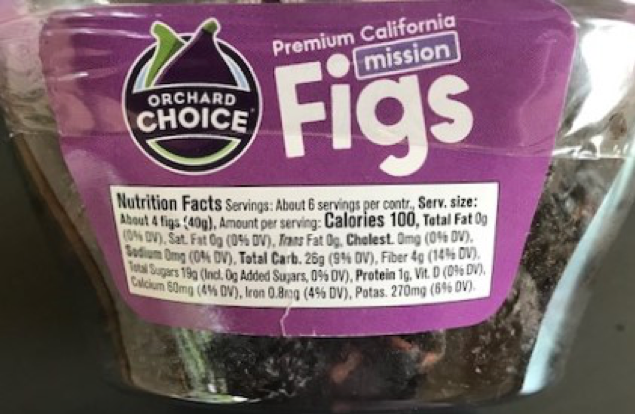
Check out the updated label for a 100-calorie (40 gram) serving of Orchard Choice California Dried Figs or Figlets. Dried figs offer healthy amounts of three “nutrients of concern” that many Americans don’t get enough of – dietary fiber, calcium, and potassium (4). Potassium and vitamin D are new to the updated the nutrition label to help people recognize foods with these nutrients. Vitamins A and C are no longer required because deficiencies of these nutrients are rare.
What is the Potassium in Figs?
One serving of Orchard Choice or Sun-Maid California Dried Figs or Figlets has 270 milligrams or 6% of the Daily Value for potassium.
Why is potassium so important? It plays a critical role in health, helping to power every heartbeat, muscle contraction and nerve transmission. As an electrolyte, a mineral with an electric charge, potassium helps maintain proper fluid levels in the blood and tissues and move nutrients and waste products in and out of cells. Getting enough potassium in your diet may offset negative effects of sodium and protect against high blood pressure, a major risk factor for heart disease and stroke. Two other key functions of potassium are to support health bones and kidney function. It may play a role in regulating blood sugar levels, too (5,6,7,8).
Potassium in Figs
Not only do figs contain potassium and other nutrients we generally need more of, they have none of the nutrients we are advised to eat less of – saturated fat, trans fat, cholesterol, sodium and, new to the updated Nutrition Facts panel, added sugars (4). “Added sugars” are sugars added during processing of foods, foods packaged as sweeteners such as table sugar, syrups, honey and sugars from concentrated fruit or vegetable juices. “Total sugars” include naturally occurring sugars (in fruits, vegetables, and milk) and “added sugars” (9).
Meal Ideas for Increasing Potassium
Orchard Choice and Sun-Maid California Dried Figs deliver on taste and healthfulness. Here are three meals and a snack that show how to combine California Dried Figs with other potassium-and nutrient-rich foods to make healthful eating a pleasure.
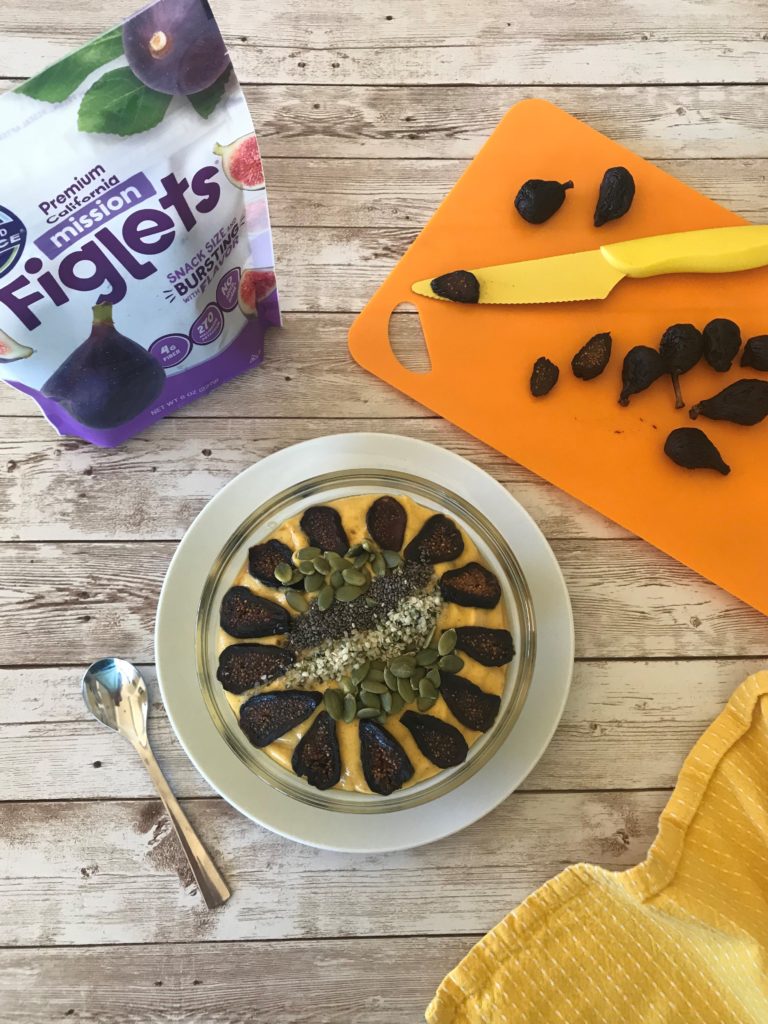
Breakfast
Fig & Seed-Topped Pumpkin Smoothie Bowl – 25% Daily Value (DV) Potassium
The smoothie combines Greek yogurt with pumpkin, mango, maple syrup and pumpkin pie spice. The toppings are sliced California Figs, pumpkin, chia and hemp seeds.
Other Key Nutrients: 30% DV calcium, 35% DV iron, 54% DV dietary fiber, 28 grams of protein and 500 calories.
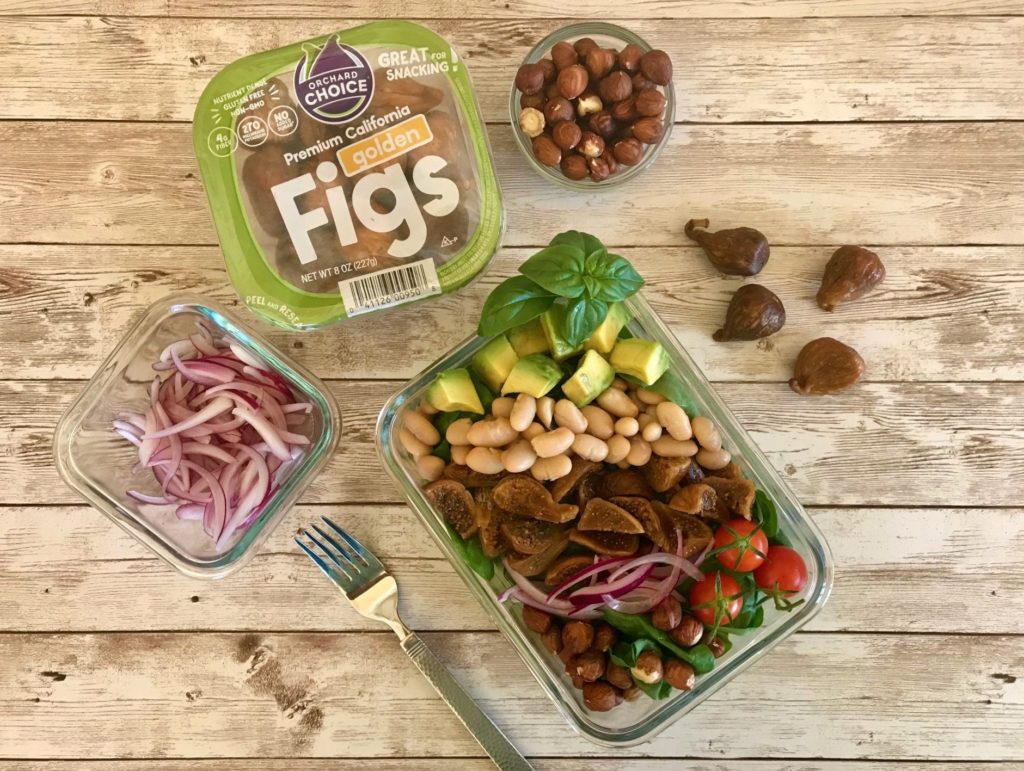
Lunch
Spinach Salad with Figs, White Beans, Avocado, Hazelnuts, Red Onion, Cherry Tomatoes and Balsamic Vinaigrette – 30% Daily Value Potassium
Other Key Nutrients: 15% DV calcium, 30% DV iron, 30% DV dietary fiber, 13 g protein, 450 calories.
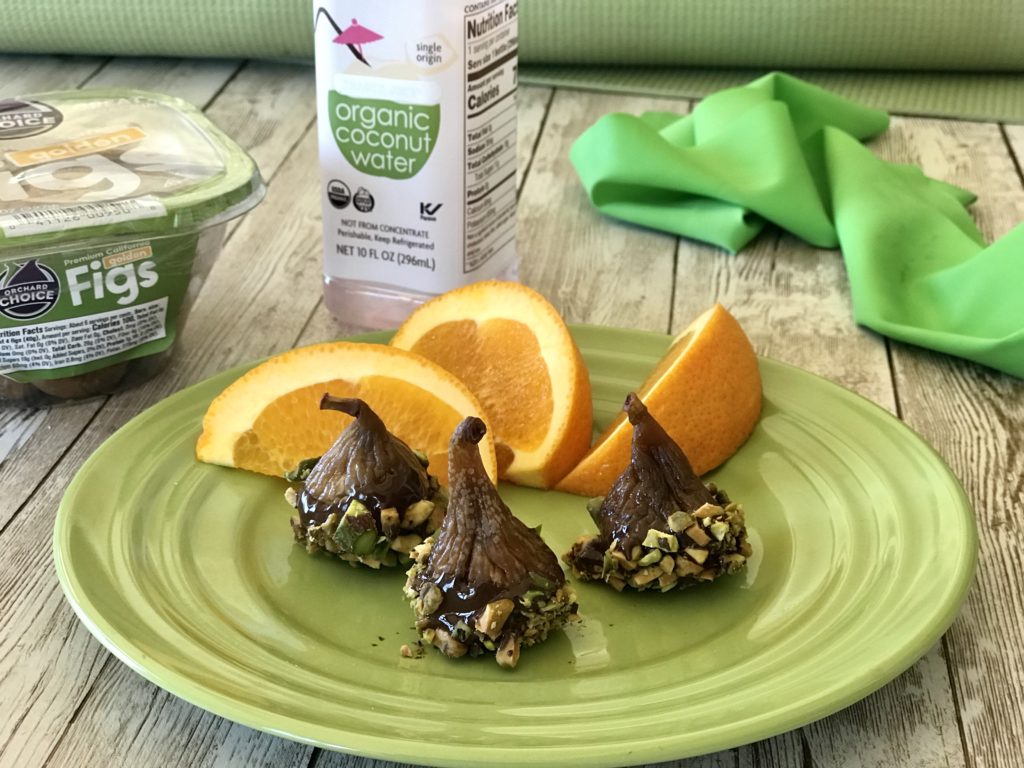
Post-Workout Snack
Chocolate-Dipped Dried Figs with Pistachios, Coconut Water and Fresh Orange – 25% Daily Value Potassium
Other Key Nutrients: 15% DV calcium, 15% DV iron, 36% DV dietary fiber, 8 grams protein, 410 calories.
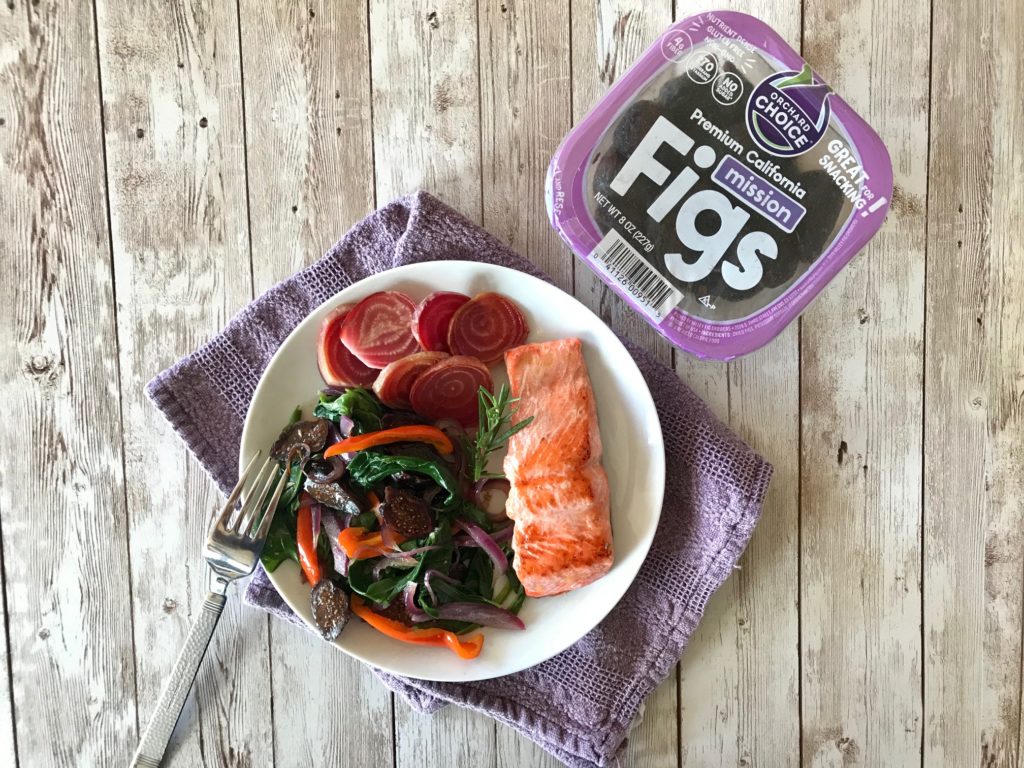
Dinner
Pan-Seared Salmon with Beet Greens Sautéed with Dried Figs, Bell Pepper, Onion and Rosemary and Roasted Beets – 35% Daily Value Potassium
Other Nutrients: 15% DV calcium, 15% DV iron, 32% DV dietary fiber, 80% DV vitamin D, 30 grams protein, 400 calories.
Note: To learn more about the new Nutrition Label see How to Understand and Use the Nutrition Facts Label, reference 9.
References
- Food and Health Survey https://foodinsight.org/wp-content/uploads/2020/06/2020-Food-and-Health-Survey-.pdf
- IFIC Food Labeling Survey 2019 https://foodinsight.org/wp-content/uploads/2019/01/IFIC-FDN-AHA-Report.pdf
- What’s New with the Nutrition Facts Label https://www.fda.gov/food/new-nutrition-facts-label/whats-new-nutrition-facts-label
- Dietary Guidelines for Americans https://health.gov/our-work/food-nutrition/2015-2020-dietary-guidelines/guidelines/
- Four Nutrients of Concern for All Americans https://www.extension.purdue.edu/extmedia/HHS/HHS-833-W.pdf
- Micronutrients: Potassium Kathleen Zelman. April 30, 2018. Food & Nutrition Magazine https://foodandnutrition.org/from-the-magazine/micronutrients-potassium/
- Potassium Fact Sheet foodinsight.org https://foodinsight.org/potassium-fact-sheet/
- Everything you need to know about potassium. Medical News Today. Megan Ware, RDN, L.D Medically reviewed by Alan Carter, Pharm.D. January 10, 2018. https://www.medicalnewstoday.com/articles/287212#benefits
- How to Understand and Use the Nutrition Facts Label https://www.fda.gov/food/new-nutrition-facts-label/how-understand-and-use-nutrition-facts-label

